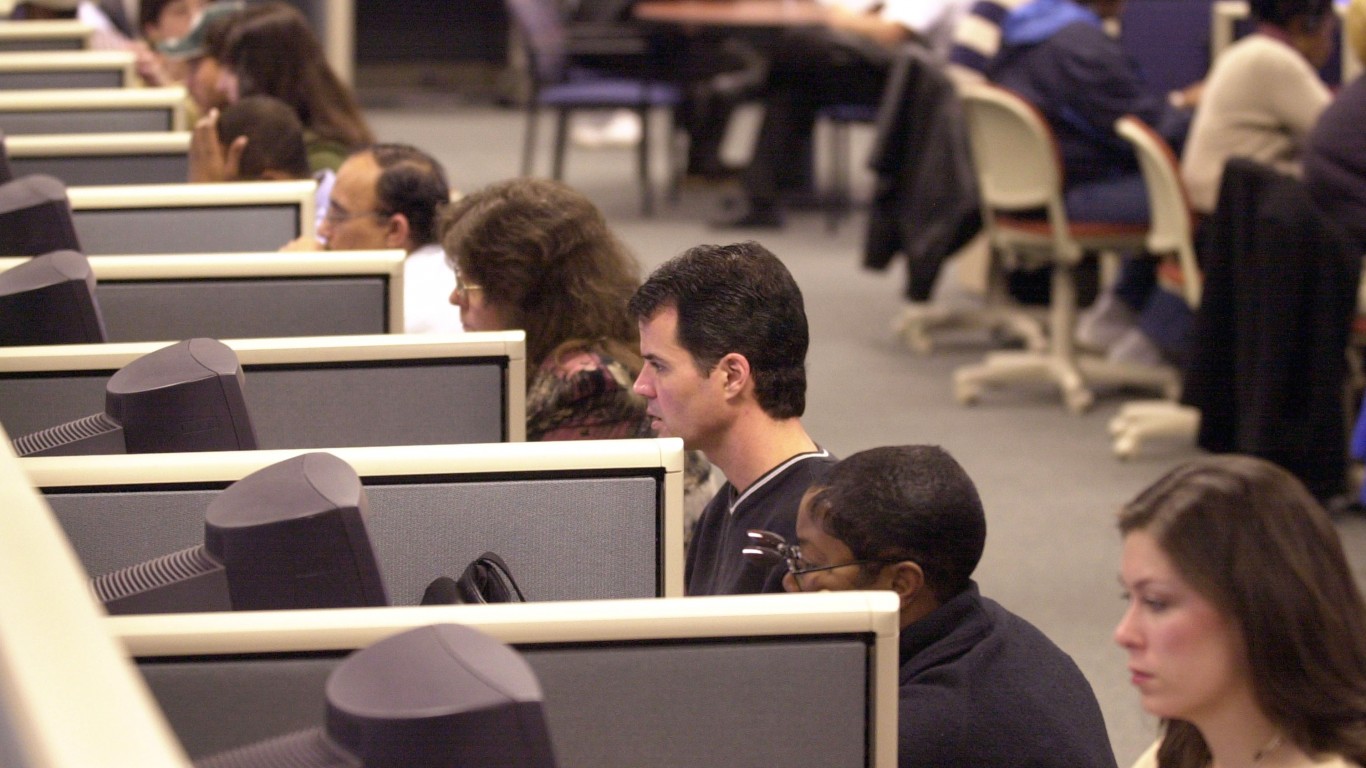
Today being Thursday, we see new Initial Jobless Claims for last week hitting the tape. These numbers continue to surprise to the downside, putting up 228K new claims; a range of 230-240K were expected by analysts. Today’s headline is the lowest tally since cycle lows in mid-May of 225K. Up until the middle of last month, initial claims had been nudging higher — over 260+ three weeks in a row — which seemed to match headwinds in the overall labor market. Yet employment apparently remains uncommonly resilient.
Similarly with Continuing Claims (reported a week in arrears from new claims): 1.754 million, while up +33K from the slightly downwardly revised 1.722 million the previous week, are still lower than analyst estimates and remain stubbornly below 1.8 million — now the case for the 10th straight week. While this resiliency is very good in guarding our economy against recession, it is also fodder for the Fed to consider continuing to raise interest rates to more fully snuff out inflation, which strong employment tends to promote.
Also in today’s pre-market, a new Philly Fed survey is out: -13.5 makes it 11 straight negative prints for this productivity metric for the sixth-biggest city in the U.S. While off cycle lows of -31.3 back in April of this year, it is nevertheless the second-straight month sub-13. Following an Empire State read earlier this week that was also lower, we are seeing a slowing in manufacturing which is consistent with a slowing economy — again bringing the Fed’s decisions into focus. This looks to be the fulcrum for the Fed to consider: higher employment versus lower productivity.
Johnson & Johnson JNJ is out with Q2 earnings results ahead of today’s open, with solid beats on the top-line — $25.53 billion in revenues, +3.43% over the Zacks consensus — and bottom: earnings of $2.80 per share, +7.28% above expectations. Strength in its MedTech space was a catalyst for the healthcare giant, and as a result, J&J has increased its full-year guidance projections. Shares are up slightly on the news, but still down nearly -10% year to date, vastly underperforming the markets.
American Airlines AAL similarly left Q2 estimates in the dust this morning: earnings of $1.92 per share on all-time record quarterly revenues of $14.06 billion for the quarter easily surpassed the $1.58 per share and $13.74 billion expected. Full-year earnings guidance was increased on the top-end to a range of $3.00-3.75 per share. Yet shares are trading -1.5% on the news, as some airfares are reportedly coming down (peak airfare now passed?) and questions about a new labor deal for American pilots currently lie in the cut.
After the opening bell this morning, we’ll take a look at June Existing Home Sales, which are expected to tick down slightly to 4.2 million — basically in-line with the previous few months, but well below the 5+ million existing home sales numbers we were seeing back in June of last year. Also, Leading Economic Indicators for June are expected to prove incrementally to -0.6% fro -0.7% reported a month ago.
Johnson & Johnson (JNJ): Free Stock Analysis Report
American Airlines Group Inc. (AAL): Free Stock Analysis Report
To read this article on Zacks.com click here.
This article originally appeared on Zacks
Travel Cards Are Getting Too Good To Ignore (sponsored)
Credit card companies are pulling out all the stops, with the issuers are offering insane travel rewards and perks.
We’re talking huge sign-up bonuses, points on every purchase, and benefits like lounge access, travel credits, and free hotel nights. For travelers, these rewards can add up to thousands of dollars in flights, upgrades, and luxury experiences every year.
It’s like getting paid to travel — and it’s available to qualified borrowers who know where to look.
We’ve rounded up some of the best travel credit cards on the market. Click here to see the list. Don’t miss these offers — they won’t be this good forever.
Thank you for reading! Have some feedback for us?
Contact the 24/7 Wall St. editorial team.


